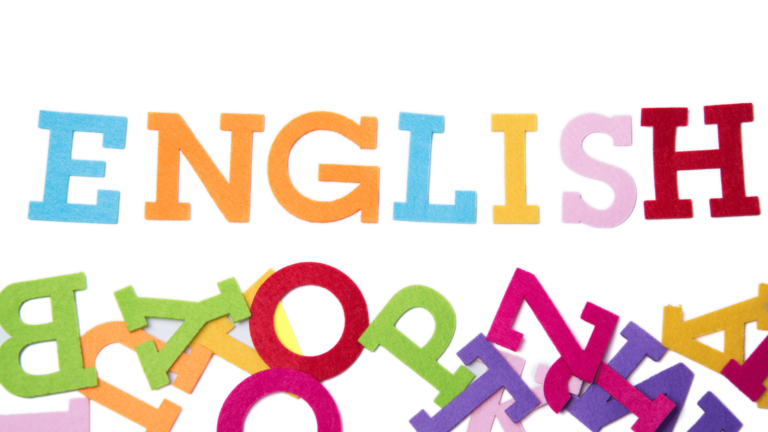The Defeat of Japan: 3 SEQ Samples
Following the reasons why Japan was involved in the conflicts in Asia-Pacific, we now move on to the reasons why they were defeated. Again, I have put a downloadable link just below this paragraph for easy download of the pdf file.
1. “Allied successes in military campaigns and battles resulted in the defeat of Japan in World War 2.” How far do you agree with this statement? Explain your answer.
(P) The Allied successes in military campaigns resulted in the defeat of Japan in World War II.
(E) Huge numbers of experienced Japanese pilots and soldiers were defeated. The Japanese were not able to replace their numbers due to limited staffing compared to the combined human resources of the Allied forces. The morale of the Allied troops rose as the Allies defeated the Japanese in several battles, from the Battle of the Coral Sea in May 1942 to Okinawa in April 1945. The Japanese were also unable to replace their damaged and destroyed equipment whenever they suffered defeats after defeats.
(E) Therefore, it became challenging for Japan to defeat its empire as troop morale was low and resources depleted quickly. At the same time, the Allied forces started to outnumber the Japanese military, making Japan’s defeat even more likely.
(L) Thus, Allied successes resulted in the defeat of Japan in World War 2.
(P) The Japanese war effort was also greatly affected by Japan’s inability to continue the war due to the lack of resources.
(E) By June 1945, the Japanese defeat was already imminent. The American naval blockade effectively restricted oil, rice, medicines and other essential materials to the Japanese. The shortage of these materials and resources significantly hampered the ability of the Japanese to continue fighting and defending their empire. Towards the end of the war, it was evident that Japan would not win the war in the Asia Pacific. Still, the Japanese leaders could not bring themselves to reveal their weakness to the Allies and were not willing to accept unconditional surrender.
(E) They were in secret negotiations with the Soviet Union before the Americans dropped the atomic bomb on Hiroshima. The talks showed that the Japanese would eventually surrender and accept defeat.
(L) Hence, the Japanese inability to continue the war resulted in the defeat of Japan in World War II.
(P) The dropping of the atomic bomb was a catalyst for Japan’s surrender and defeat.
(E) By 1945, the USA was considering either using the atomic bomb on Japan or launching a full-scale invasion of Japan to bring about the Japanese surrender. President Truman approved the use of the atomic bomb to avoid the loss of more Allied troops.
(E) The first bomb was dropped on Hiroshima on 6 August 1945 and caused massive destruction – one-third of the city’s population of over 66,000 people were killed instantly, with another 70,000 Japanese injured. The USA demanded Japan surrender unconditionally. However, the Japanese leadership continued to refuse to do so. The second bomb on Nagasaki killed 40,000 people instantly and burnt 25,000. Emperor Hirohito announced Japan’s unconditional surrender to the Allies on 15 August 1945.
(L) The effects of the two atomic bombs proved to be the last straw for Japan and finally resulted in the defeat of Japan in World War II.
(P) The defeat of Japan was mainly due to the Allied economic strength and resources, which far exceeded that of the Japanese.
(E) The USA’s industrial capacity was more significant than Japan’s and could sustain a long war. The Japanese did not have a large industrial base compared to the Allied Powers. The USA also mobilised women to be involved in the war effort by working in factories. The Japanese could not keep up with the Allied Powers in terms of producing war machinery and resources due to their limited workforce, industrial capabilities and economic funding.
They were thus unable to produce and replace essential weapons as quickly as the Allies and had much fewer troops to mobilise. Furthermore, the Japanese had to rely only on themselves and could not count on support from Germany as Germany was facing an Allied onslaught and was defeated in May 1945.
(E) The Japanese could not stand up to the Allies’ combined economic strength and resources and were already struggling to sustain the war effort from 1941. The continued Allied aerial bombings of mainland Japan destroyed Japanese factories and brought Japan’s economy to the brink (near) of collapse.
(L) Thus, America defeated Japan in World War II.
(J) In conclusion, the allied successes in military campaigns were one of the reasons that resulted in the defeat of Japan, as they severely hamper Japan’s war efforts. However, these successes would not have occurred without the Allied economic strength to sustain their war efforts and ultimately triumph over the Japanese. Furthermore, Japan’s overextension made it easy for the Allies to succeed in their military campaigns against the Japanese.
2. “Japan’s vulnerability to the US island-hopping campaign was a more important reason for the defeat of Japan rather than US economic strength.” How far do you agree with this statement? Explain your answer.
(P) The island-hopping campaign was an important reason for the defeat of Japan.
(E) The Japanese Empire had overstretched itself. It was difficult for the Japanese forces to maintain control over their empire, which stretched from Manchuria in the East to the Burmese border with India and to Papua New Guinea in the south. The Japanese had no choice but to spread their troops across the Pacific Islands due to the large land area. As the USA reconquered the Phillippines and moved towards the Japanese mainland, they used the ‘island-hopping’ strategy. The USA picked strategically crucial islands to invade and built landing stripes to attack another strategically located island. They bypassed the ones that were not important.
(E) As the Japanese did not have adequate air and naval presence in the region, these troops stationed on islands untouched by the Allied troops could not engage the Allied soldiers. The Allies quickly concentrated their troops on islands of strategic importance and reached mainland Japan quickly.
(L) As a result, the island-hopping campaign was an important factor in Japan’s defeat.
(P) US economic strength was an important reason for Japan’s defeat.
(E) The USA was the most significant industrial producer globally at the time. Although the USA primarily produced goods for consumption instead of military equipment, it quickly switched to military production. After the economic crisis of the Great Depression, the USA had many unemployed people who were eager to work. These willing citizens proved to be far better workers than the forced workers used by the fascist states such as Japan. Japan did not have a solid industrial foundation or capabilities to support its war effort.
(E) As a result, the USA could soon outproduce the Japanese, which soon gave them an advantage over the Japanese as they could better replace their losses. With better production, the Americans could deploy more equipment, armaments and troops, outnumbering the Japanese military.
(L) Thus, better American production also helped to the defeat of Japan.
(J) In my final analysis, the heavy defeats of the Japanese by the American forces during the island-hopping campaign were responsible for them getting into striking distance of Japan. Thus, ‘island-hopping’ allowed the Americans to strike at and threaten the Japanese homelands. However, it was ultimately US economic strength that allowed them to have the resources to wear and down and defeat the Japanese in the first place. As such, the US economic power is more important in the defeat of Japan.

3. Explain why the USA used atomic bombs in Japan in World War 2.
(P) The USA used atomic bombs on Japan to secure Japan’s surrender due to Japan’s refusal to accept unconditional surrender.
(E) The Japanese viewed yielding as disgraceful. They persisted in resisting the Allies, even resorting to desperate tactics such as kamikaze missions. Japanese pilots were put on suicide missions to intentionally crash their planes into Allied ships to inflict maximum damage on the Allies. The Allies were worried that the persistence of such attacks would result in a prolonged war with a high number of casualties.
(E) Thus, the USA decided to use the atomic bombs as a strong warning and a means of finally forcing the Japanese to accept unconditional surrender and ending the war quickly. The Americans believed that the unprecedented scale of the damage and destruction brought about by the bombs would leave Japan with no other choice.
(L) Hence, the bombs were to force the defeat of Japan and secure it’s unconditional surrender.
(P) The USA also used atomic bombs on Japan due to its desire to impress Stalin and prevent the Soviet Union from claiming credit for Japan’s surrender.
(E) Receiving aid from the Soviet Union would mean giving the Soviet Union added power and influence in the Asia-Pacific following World War II. By the middle of 1945, the Allied had defeated Nazi Germany. The Soviet Union already had established considerable influence over Eastern Europe due mainly to the critical role of liberating the Nazi occupation. The Western Allies, headed by the USA, wanted to avoid a similar scenario in the Asia-Pacific, which could occur if the Soviet Union were to play a more active role in fighting the Japanese in the region due to the Japanese refusal to surrender.
(E) Hence, the USA decided to use the atomic bombs on Japan in World War II before the Soviets declared war on the Japanese as agreed on earlier. Through the use of the bombs, the USA would be able to claim credit for securing Japan’s surrender and assert its dominance in the region, which would deprive the Soviet Union of an opportunity to spread its influence and ideology in the Asia-Pacific region.
(L) Thus, the Americans used the bombs to prevent Communist influence over Japan.
Conclusion
This is part of the History Structured Essay Question series. More detailed information of the defeat of Japan can be found here. You can also read more about the O Level History elective syllabus here. You can download the pdf version below.
Other chapters can be found below:
- Treaty of Versailles
- League of Nations
- Rise of Stalin
- Stalin’s Rule
- Rise of Hitler
- Hitler’s Rule
- Reasons for World War II in Europe
- Reasons for the Defeat of Germany
- Reasons for World War II in Asia-Pacific
- Reasons for the Cold War
- Korean War
- Cuban Missile Crisis
- Reasons for the End of the Cold War

Critical Thought English & Humanities is your best resource for English, English Literature, Social Studies, Geography and History.
My experience, proven methodology and unique blend of technology will help your child ace their exams.
If you have any questions, please contact us!







